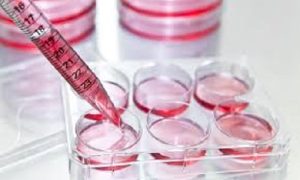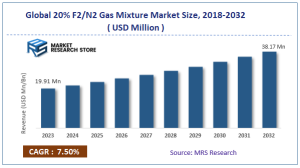 Cell-Based Assays Market Size And Overview
Cell-Based Assays Market Size And Overview
In 2022, the worldwide market for cell-based assays was estimated to be worth $ 16.3 billion. According to projections, this figure is expected to rise to $26.5 billion by 2028, indicating a compound annual growth rate (CAGR) of 12.4% between 2023 and 2030. The pharmaceutical industry is experiencing a significant surge in market growth, which can be attributed to various factors. One of the primary drivers is the rising demand for new drugs and treatments. Additionally, the growing prevalence of chronic diseases has contributed to the expansion of the market. Another crucial factor is the advancements in technology, which have enabled the development of innovative pharmaceutical products.
These and other factors have collectively fueled the growth of the pharmaceutical industry in recent years. The global market is poised for substantial growth in all regions, with North America currently leading the way as the largest market, followed by Europe and the Asia-Pacific region. The adoption of high-throughput screening and automated systems has significantly impacted the market, making cell-based assays more efficient and cost-effective. This has resulted in an increase in the market’s growth as more industries are now able to leverage these technologies.
The market growth of the healthcare industry is expected to be fueled by the increasing demand for personalised medicine and research funding in the near future. The cell-based assays market is poised for consistent growth in the foreseeable future, primarily due to the surging need for advanced drugs and therapies and the escalating incidence of chronic ailments.
Cell-based assays are a set of laboratory techniques that are employed to evaluate the activity or characteristics of cells when exposed to different stimuli. These stimuli may include drugs, hormones, toxins, or other environmental factors. The assays are designed to provide a comprehensive understanding of the cellular response to these stimuli. Assays are versatile tools that can shed light on various cellular processes. These processes include but are not limited to cell proliferation, apoptosis, migration, differentiation, and signalling pathways.
Cell-based assays are an essential tool in modern biomedical research, allowing scientists to investigate various cellular processes and functions. These assays come in different types, including viability assays, proliferation assays, apoptosis assays, migration assays, and differentiation assays. Each of these assays utilises different cellular markers, imaging techniques, or biochemical assays to provide valuable insights into the behaviour of cells under different conditions. By leveraging these assays, researchers can better understand the complex mechanisms that govern cellular behaviour and develop new therapies and treatments for a wide range of diseases. Viability assays are commonly used to determine the metabolic activity of cells through the use of colourimetric or fluorescent dyes. On the other hand, proliferation assays are utilised to measure cell growth either by counting cells or by assessing DNA synthesis.
See Also – https://www.linkedin.com/pulse/cell-based-assays-market-size-key-tool-drug-discovery-maria-howard/
Growth Factors
Cell-based assays have become a popular tool in the fields of drug discovery, toxicology, and basic research. These assays are utilised to screen potential drug candidates and to investigate the impact of chemicals or other factors on cellular processes. In the field of clinical diagnostics, these tools find their application in detecting and quantifying particular biomolecules or cells present in patient samples. For instance, they are used to identify circulating tumour cells or antibodies.
Cell-based assays are highly effective in exploring the intricacies of cellular processes and pinpointing promising drug candidates or diagnostic biomarkers. These assays offer a robust means of investigating the underlying mechanisms of cellular activities, making them a valuable tool for researchers and scientists alike.
The market for cell-based assays is experiencing significant growth due to various factors. These factors include the increasing demand for cell-based assays in drug discovery and development, the rising prevalence of chronic diseases, and the growing focus on personalised medicine. Additionally, advancements in technology and the availability of automated systems have also contributed to the growth of the cell-based assays market. The increasing adoption of 3D cell culture and the emergence of microfluidics technology are also expected to drive the growth of this market in the coming years. Overall, the cell-based assays market is expected to continue to grow as the demand for more efficient and effective drug discovery and development methods increases.
In the upcoming years, the global market for cell-based assays is anticipated to experience substantial growth owing to various crucial factors. In the realm of business and economics, growth factors are essential components that contribute to the expansion and development of a company. These factors can be diverse and multifaceted, ranging from market demand and technological advancements to strategic planning and effective management. By identifying and leveraging these growth factors, businesses can achieve sustainable growth and success in their respective industries.
The field of drug discovery has seen a surge in demand for cell-based assays in recent years. This trend can be attributed to the numerous benefits that cell-based assays offer over traditional biochemical assays. Cell-based assays provide a more physiologically relevant environment for drug testing, allowing for a more accurate representation of how a drug will interact with human cells. Additionally, cell-based assays can provide insights into a drug’s mechanism of action, which can be crucial Cell-based assays play a crucial role in drug discovery by facilitating the identification of promising drug candidates, assessing toxicity levels, and investigating cellular mechanisms. These assays are extensively employed in the pharmaceutical industry to expedite the drug development process and enhance the efficacy of drug discovery. The market for cell-based assays is on the rise, thanks to the growing demand for new drugs. This trend is a direct result of the increasing popularity of cell-based assays, which are being used more frequently in drug development.
Chronic diseases such as cancer, diabetes, and cardiovascular diseases are becoming increasingly prevalent worldwide. The increasing demand for innovative drugs and treatments has resulted in a surge in the utilisation of cell-based assays in drug development.
The field of technology has witnessed remarkable progress in recent years, particularly in the area of high-throughput screening and automated systems. These advancements have significantly enhanced the efficiency and cost-effectiveness of cell-based assays. The rise in popularity of research laboratories and pharmaceutical companies has led to an increase in the adoption of these products, thereby fueling the growth of the market.
Research and development funding has been on the rise, with both government and private organisations investing heavily in this area. One particular focus has been on drug discovery, with significant resources being allocated towards advancing this field. The increasing need for effective drug development and research has resulted in a surge in the popularity of cell-based assays. These assays have become an essential tool in the field, owing to their ability to provide accurate and reliable results.
The field of personalised medicine is experiencing a surge in demand, driven by the desire to provide tailored treatment plans for patients. This approach allows for a more individualised approach to healthcare, catering to the unique needs of each patient. The market for cell-based assays is experiencing a surge in growth, thanks to their ability to pinpoint patient-specific reactions to drugs. This innovative approach is revolutionising the way drugs are tested and developed, and is quickly gaining traction in the medical community.
The global market for cell-based assays is poised for substantial growth in the coming years, driven by a surge in demand for novel drugs and therapies, a rise in the incidence of chronic ailments, and technological breakthroughs.
The Cell-Based Assays market is currently undergoing regional analysis to determine its growth and potential in various regions. This analysis aims to identify the market trends, opportunities, and challenges in different regions across the globe. The regional analysis of the Cell-Based Assays market is crucial in understanding the market dynamics and factors that influence its growth in specific regions. It also helps in identifying the key players and their strategies in the market. The regional analysis of the Cell-Based Assays market is expected to provide insights into the market’s future growth prospects and help stakeholders make informed decisions.
Browse Full Report – https://www.zionmarketresearch.com/report/cell-based-assays-market
Cell-Based Assays Market: Competitive Space
Key players in the global cell-based assays market include:
- Charles River Laboratories
- F. Hoffmann-La Roche Ltd. (Roche Holdings AG)
- BD
- Promega Corp.
- Merck KGaA
- Corning Inc.
- Bio-Rad Laboratories Inc.
- Lonza AG
- Danaher Corp.
The global cell-based assays market is segmented as follows:
By Product & Service
- Reagents
- Cell Lines
- Instrument & Software
- Assay Kits
- Microplate
- Services
By Application
- Basic Research
- Drug Discovery
By End-Use
- Pharmaceutical & Biotech Companies
- Academic & Research Institutes
- CROs
By Region
- North America
- The U.S.
- Canada
- Europe
- France
- The UK
- Spain
- Germany
- Italy
- Rest of Europe
- Asia Pacific
- China
- Japan
- India
- South Korea
- Southeast Asia
- Rest of Asia Pacific
- Latin America
- Brazil
- Mexico
- Rest of Latin America
- Middle East & Africa
- GCC
- South Africa
- Rest of Middle East & Africa


Be First to Comment